Is the net zero agenda missing Boris Johnson?
The UK has failed to capitalise on any momentum coming out of its COP presidency.
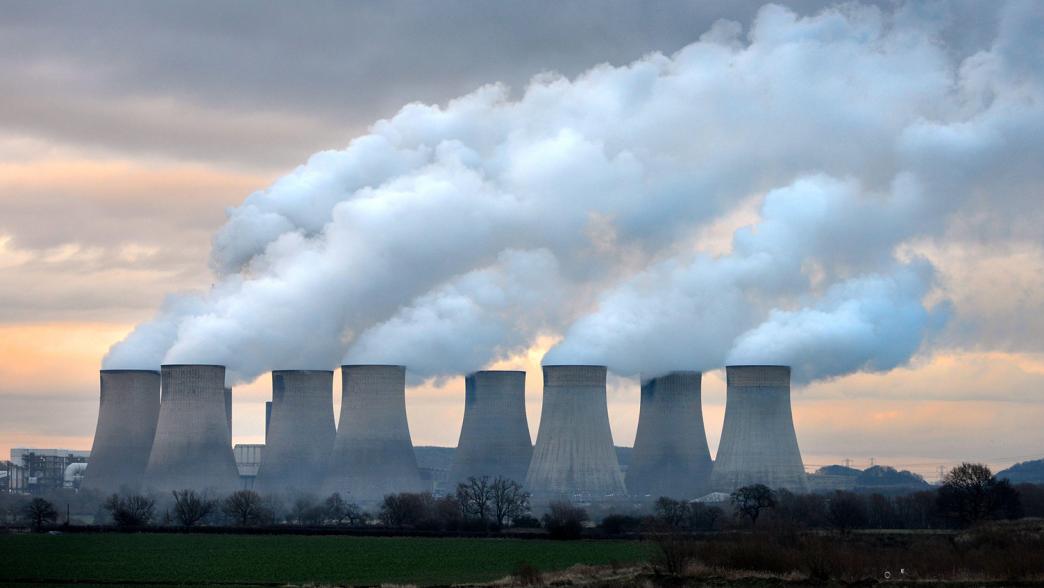
The latest report from the Committee on Climate Change (CCC) highlights a stalling of progress in emissions reduction over the last year. Jill Rutter argues that this underlines the lack of political leadership evident from No.10
The Climate Change Committee’s latest annual report 25 Climate Change Committee, 2023 Progress Report to Parliament, 28 June 2023, www.theccc.org.uk/publication/2023-progress-report-to-parliament/ notes that while the UK still remains a leader in past emissions reduction, it is not on track to meet its longer-term goals – indeed, it argues that the UK is losing its long-held claim to be an international leader on climate change. Furthermore, according to the report, the UK has failed to capitalise on any momentum coming out of its (relatively successful) COP presidency.
In some ways that is no surprise. The government has been hit by multiple crises – first the energy price spikes following the Russian invasion of Ukraine and then the more general cost of living crisis. But the CCC notes that the UK – unlike many other countries – failed to capitalise on concern about energy prices to pursue policies that could help both reduce the cost of living and move towards its net zero goals. It took months before there was any move to promote even simple energy saving tips.
That moves into a more general concern in the CCC report – that the government is still placing too much faith in technologies – such as hydrogen and greenhouse gas removals – unproven at scale and is too reluctant to talk about demand reduction. That was true when the government produced its net zero strategy in October 2021 and it remains true today.
The government has been forced by the courts to put more flesh on the bones of its sketchy plans – but that greater detail in the plan, which it published in March, 26 HM Government, Powering up Britain, 30 March 2023, www.gov.uk/government/publications/powering-up-britain has actually led the CCC to be more vocal about the inadequacy of what the government is proposing. It also warns that government go-aheads for new fossil fuel development (the Cumbria coal mine and the government’s willingness to licence more North Sea oil activity) as going in the wrong direction. Transparency has simply shone a spotlight on inadequacy.

There were always doubts about Rishi Sunak’s commitment to net zero – and the potential spending it entailed – when he was at the Treasury. Now he is prime minister, it was very notable that net zero did not make it into his five priorities and he was initially very reluctant to attend COP27, 27 Mason R and Horton H, Rishi Sunak U-turns on decision not to attend Cop27 climate summit, The Guardian, 2 November 2022, www.theguardian.com/environment/2022/nov/02/rishi-sunak-u-turns-decision-not-to-attend-cop27-climate-summit rather than stay in Downing Street co-designing the budget with his chancellor. There is also a small but vocal group of net zero critics within his party. One of the most vocal is Lord Frost, 28 Groves J, Lord Frost urges Rishi Sunak to cut taxes and ditch the politics of the David Cameron era in 'radical' call to revive Tory fortunes, Daily Mail, 26 June 2023, www.dailymail.co.uk/news/article-12236077/Lord-Frost-urges-Rishi-Sunak-cut-taxes-ditch-politics-David-Cameron-era.html who is calling for net zero policies to be postponed or ditched. That lack of prime ministerial interest is now showing in an area where leadership from the top is critical – and where, however chaotically, Boris Johnson was prepared to deploy his political capital.

Rishi Sunak attending COP26 in Glasgow. There were doubts about his commitment to net zero when he was at the Treasury.
The creation of DESNZ has not (yet) solved the coordination or delivery problems
The one move Rishi Sunak has made on net zero is to create a new focussed department. In effect, he reversed the change Theresa May made in 2017 to accommodate her new Brexit departments, and recreated the old Department of Energy and Climate Change, with a new name – the Department of Energy Security and Net Zero, with the same responsibilities but also with the same problems that the old department suffered from. People in the new department seemed pleased to be independent actors again – and not to have to compete with other pressing demands on their secretary of state’s time. Energy and net zero now have their own voice back at the cabinet table.
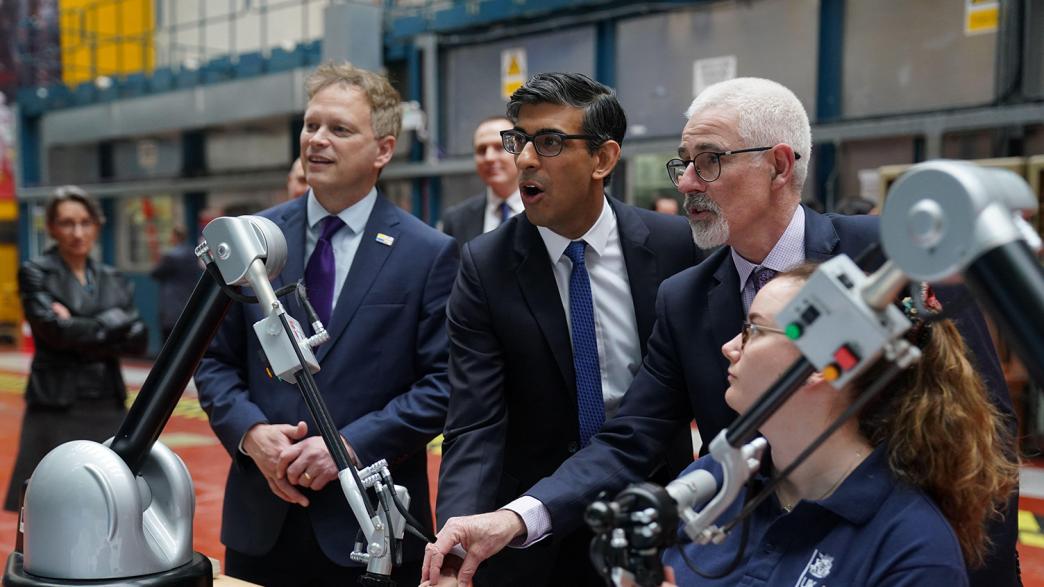
But as we identified in our 2020 report, neither DECC nor the Department for Business, Energy and Industrial Strategy (BEIS), had the clout to deliver progress outside their own remit – and the Climate Change Committee highlights how progress in decarbonising the power sector, DESNZ’s own responsibility, is outstripping progress in other areas. While there is a mixed picture in, for example, surface transport (with a higher than expected forecast take up of electric cars, offset by poor uptake of electric vans in the surging small van fleet), in others there has been no progress whatsoever. The CCC points the finger at the Department for Environment, Food and Rural Affairs (Defra) and the Department for Levelling Up, Housing and Communities (DLUHC) where there has been little or no movement forward in the past year. Defra, for example, has failed to come close to targets on tree planting and peatland restoration, and not produced a land use strategy. Heating buildings remains an area where there is a huge gap between ambition and action. Neither BEIS, nor yet DESNZ, nor the associated cabinet committees seem able to drive progress on reluctant departments, struggling with other, more pressing, departmental priorities. Losing months to political infighting will not have helped either.
And yet again the CCC points to delivery as a problem. This was identified as a big gap in the Net Zero Review, 31 Skidmore C, Mission Zero: Independent Review of Net Zero, 13 January 2023, https://assets.publishing.service.gov.uk/government/uploads/system/uploads/attachment_data/file/1128689/mission-zero-independent-review.pdf commissioned by Liz Truss during her brief premiership, by Conservative backbencher Chris Skidmore MP, who recommended the creation of an Office for Net Zero Delivery. The government response 32 HM Government, Responding to the Independent Review of Net Zero’s Recommendations, March 2023, https://assets.publishing.service.gov.uk/government/uploads/system/uploads/attachment_data/file/1147370/responding-to-independent-review-of-net-zero… was that the creation of DESNZ a few weeks later was the answer and that it would work closely with the Treasury and the Cabinet Office to coordinate. It is not yet clear that this approach is sufficient to drive progress.

Heating buildings remains an area where there is a huge gap between ambition and action.
Labour should concentrate on delivering the targets already set, not increasing them
As the CCC points out, the government does not have plans in place to deliver its ambitious Nationally Determined Contribution 35 Department for Energy Security and Net Zero and Department for Business, Energy and Industrial Strategy, UK’s Nationally Determined Contribution, updated September 2022, 12 December 2020, www.gov.uk/government/publications/the-uks-nationally-determined-contribution-communication-to-the-unfccc for 2030 – a 68% reduction in emissions from a 1990 baseline – that it announced ahead of the Glasgow COP. Making the UK “a clean energy superpower” is one of Labour’s five missions for government, and it has said that it would aim to increase the government's target if it wins the next election.
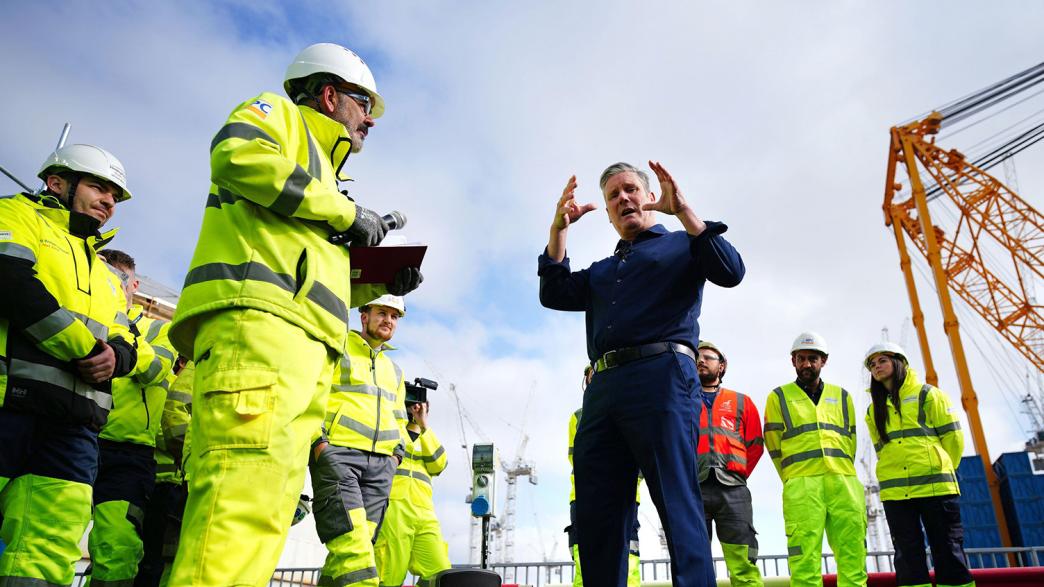
But although Keir Starmer seems to be keener on net zero than the prime minister, and Rachel Reeves has set out her ambition to be the first “green chancellor”, it is easy to win cheap plaudits for raising the level of declared ambition. The big challenge is to actually deliver them. The next parliament will end in 2028 or 2029 – by which time it will be very obvious whether a 2030 target is in its sights or not. As the CCC points out, even the government target requires a big acceleration in emissions reduction over the rest of the decade. Better to deliver that, and set course for the next carbon budget, than struggle and underdeliver.
Labour has also had much criticism 36 Rawnsley A, Labour must do no more backsliding on commitments to create a green economy, The Guardian, 25 June 2023, www.theguardian.com/commentisfree/2023/jun/25/keir-starmer-retreat-green-spending-harm-economy-and-planet for scaling back its initial commitment to spend £28bn a year over the next parliament to ensure that it stays within its fiscal rules. In its own terms, it makes much more sense to reprofile the spending over the next parliament. There will not be the famed shovel-ready, good-to-go projects available that mean £28bn can be well spent from the standing start it will inherit. What does matter is that having decided on which projects to finance, the government then sticks to its plans so that it can attract the necessary private investment as well.
IfG Net Zero Conference
Chris Skidmore and Ed Miliband joined us for our net zero conference, examining what government needs to do to meet its climate objectives.
Watch the event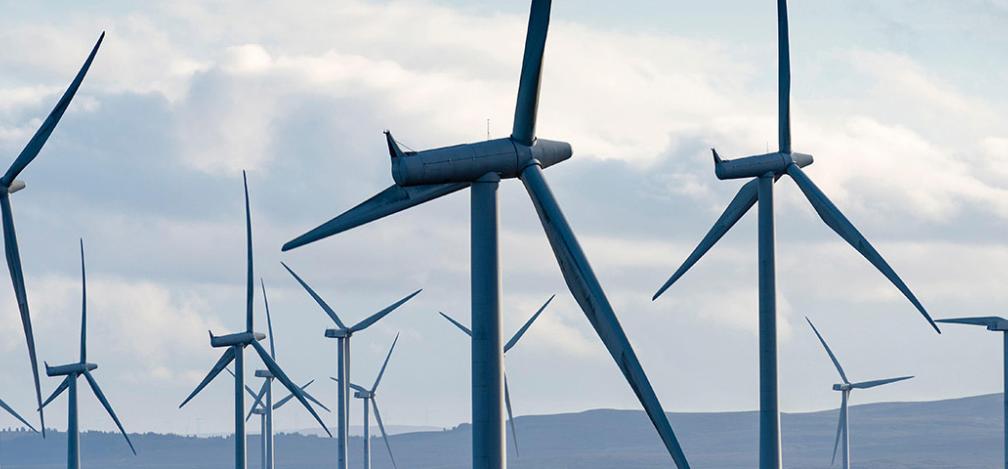
UK industry risks missing out in the green subsidy race
A clear green line seems to be emerging over support for industry to deliver net zero. The US is mobilising dollars to support US businesses and jobs in its Inflation Reduction Act and the EU is doing the same with its Green Deal plan. 39 Jurkovic P, Energy security and industrial strategy – UK and EU divergence, UK in a Changing Europe, 17 May 2023, https://ukandeu.ac.uk/energy-security-and-industrial-strategy-uk-and-eu-divergence/ Ed Miliband, Labour’s energy and net zero shadow cabinet member, is clearly keen for the UK to get in on the act, albeit in a more targeted way.
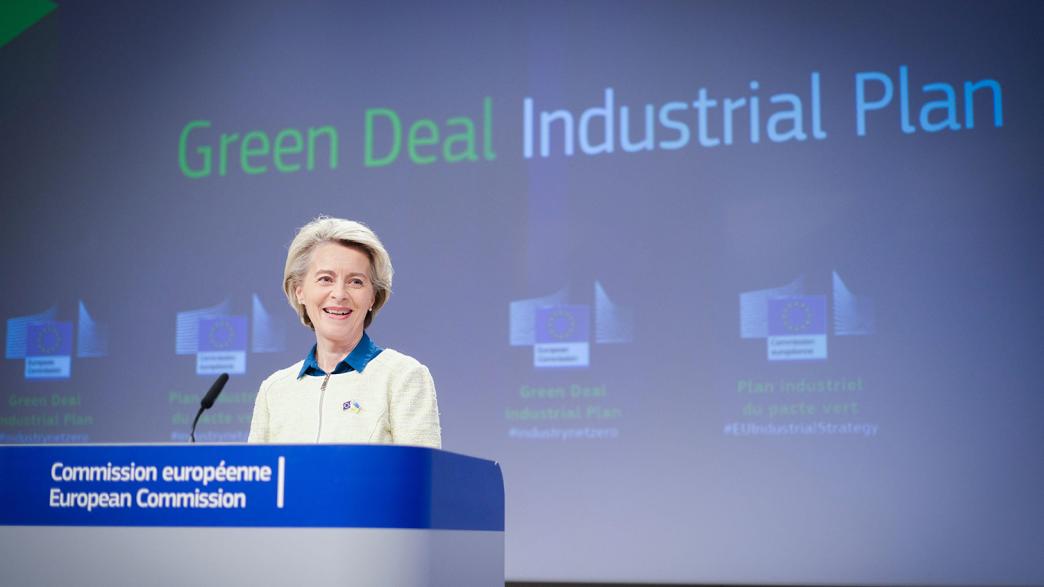
Rishi Sunak and Jeremy Hunt appear much more sceptical 40 Honeycombe-Foster M, UK chancellor swipes at Biden’s ‘massively distortive’ Inflation Reduction Act, Politico, 30 March 2023, www.politico.eu/article/jeremy-hunt-joe-biden-uk-chancellor-swipes-at-bidens-massively-distortive-inflation-reduction-act/ about going head to head with the big regional players (and indeed if the UK had stayed in the EU it would undoubtedly have tried to water down the ambition and costs of what the EU is planning). The danger of their prudential and cautious approach is that business chases the subsidy and the UK loses out on some of the technologies and players that will be best placed to exploit the opportunities from decarbonisation. But equally both the EU and the US risk wasting quite big sums. We will see the government’s plans in the autumn, but this looks like a potential dividing line at the next election.
The Climate Change Committee itself is in transition
This report is the last while Lord Deben, former Conservative environment secretary John Gummer, chairs the committee. The government has yet to appoint a successor – which needs to be someone who has economic credibility as well as environmental credentials, but is acceptable to all the governments of the UK. It is hardly surprising that the government is taking its time to find someone who fits the bill but leaving the CCC in prolonged limbo with an interim chair will again signal that this is not a particular priority for the government.
What is clear in the report is that Lord Deben is quite frustrated at the position the UK finds itself in now. His parting shot is to say: “I urge government to find the courage to place climate change once again at the heart of its leadership. It would be a terrible error if we in Britain hesitate just as the rest of the world wakes up to the opportunity of net zero.”
If he had stayed in parliament unsuspended, Boris Johnson might even have been able to take the government to task for its failure to nurture his legacy.
These issues were all be discussed at the Institute for Government’s Net Zero Conference on 5 July. Chris Skidmore and Ed Miliband gave keynote speeches, and panel sessions will address the delivery channel and how best to support industry to make the most of net zero.
- Topic
- Net zero
- Keywords
- Climate change Energy Environment Cost of living Ukraine crisis Energy Security Strategy Public spending General election
- Political party
- Conservative
- Administration
- Sunak government Johnson government
- Department
- Department for Business, Energy and Industrial Strategy Department for Energy Security and Net Zero
- Public figures
- Rishi Sunak Grant Shapps Jeremy Hunt Boris Johnson
- Publisher
- Institute for Government